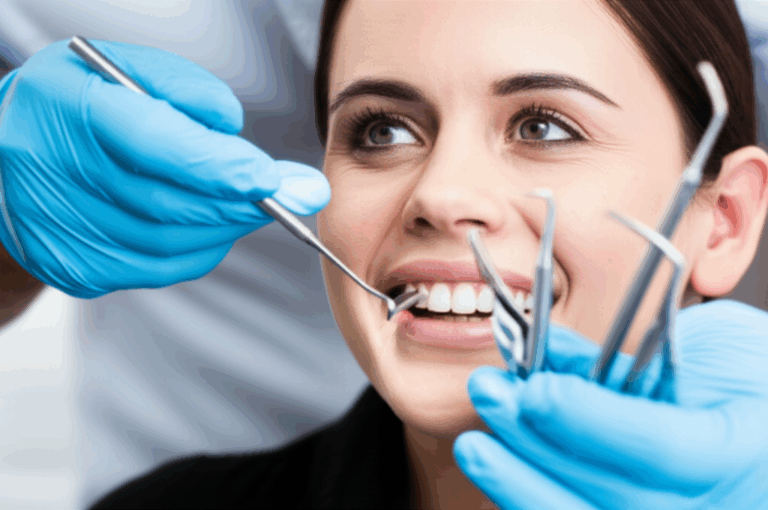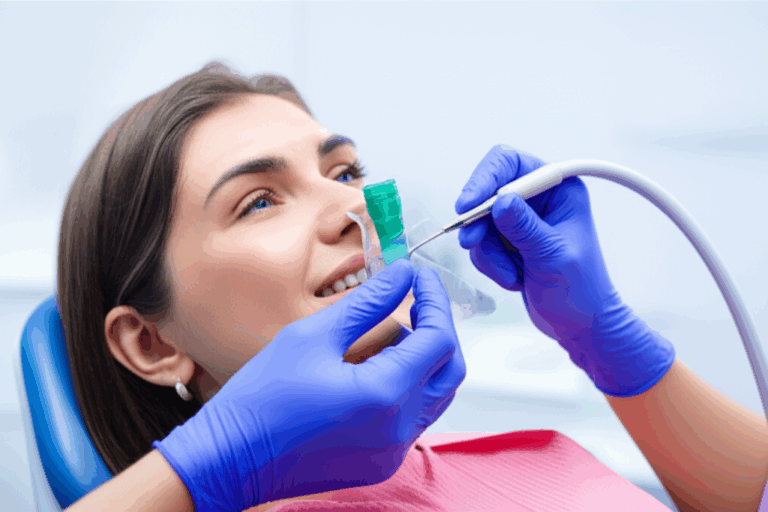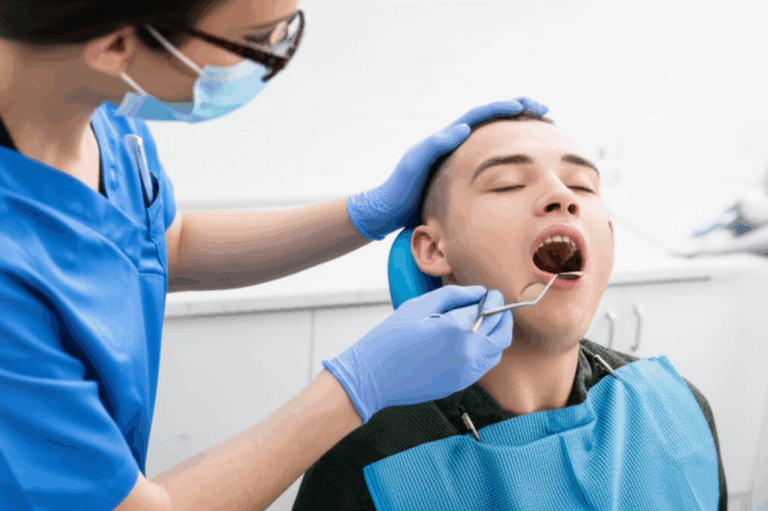
Can a 16-Year-Old Go to the Dentist Alone? Your Guide to Consent, Law, and Office Policies
Ever think, “Can I go to the dentist by myself at 16?” Here we’ll talk about the facts, your rights, and easy tips for good dental care when you’re almost an adult. This guide has answers for teens, parents, and anyone asking about dental consent, privacy, and office rules. Read on – taking care of your teeth starts with knowing the basics!
Table of Contents
Introduction: Why Ask This Question?
You’re 16. You want healthy teeth. Maybe your parents can’t come, or you want to do things yourself. So you wonder, “Can I just go to the dentist alone?” This is a smart thing to ask, and many teens are thinking about this right now.
Why this matters: You want to take care of your teeth and not have bigger problems later. But you also don’t want to be sent home or feel awkward. I’ve talked to teens, parents, and dentists—everyone says it’s confusing, with different rules about consent, privacy, and every office being different. Let’s clear this up together. This article is important because you’ll learn how to make your next dentist visit simple and worry-free.
Who Decides? Understanding Consent for Dental Care
The first thing to know is who gives “consent” for dental treatment. Consent means giving the OK for the dentist or dental office to check your teeth, clean them, fix a cavity, or take x-rays.
Problem: Most 16-year-olds aren’t adults yet. In pretty much all states, you become an adult at 18. That means your parent or legal guardian usually needs to sign forms and say yes before most dental work can happen.
But—this is important—not every place has the exact same rules! Some places let “mature minors” make more choices on their own, but most of the time you still need a parent or guardian unless you are emancipated or a special rule fits you.
Worry: If you show up alone and didn’t plan ahead, you might have to leave without seeing the dentist. Or worse, the dentist can’t do anything because you don’t have a signed consent form.
What to do: Keep reading and you’ll find out how to avoid these problems!
What Do State Laws Say About 16-Year-Olds and Dentists?
Every state has its own rules for what age a teen can decide for themselves on health care. With dental work, the rules usually say:
- Age of Majority: 18 in almost every state. Under 18, you are a minor.
- Mature Minor Rule: Some states let teens as young as 14 to 16 say yes to basic care—if the dentist thinks you understand what’s going on. But this is more common for regular health problems, not teeth cleaning or fillings.
- Emancipated Minor: If a judge says you’re an adult before 18, you can pick your own dental care and pay bills like anyone else.
- Emergencies: In a real emergency like a cracked tooth from an accident, dentists usually treat you right away and sort out the forms after.
Table: Minor Consent Laws by State (Sample)
| State | Age of Majority | Mature Minor Allowed? | Emancipated Minor Rights | Cleaning Alone? |
|---|---|---|---|---|
| California | 18 | Sometimes | Yes | Likely no |
| Texas | 18 | Rarely | Yes | Likely no |
| New York | 18 | Sometimes | Yes | Maybe (call!) |
| Florida | 18 | Sometimes | Yes | Maybe |
Always call your dentist first to find the real rules where you live!
What Happens Inside the Dental Office?
So, maybe the law almost lets you come alone at 16. But what about the dental office down the street?
Problem: Even if the law sort of says yes, dental offices can have their own rules.
- Some offices say a parent or guardian has to be there for anyone under 18. This is for getting legal consent, payment forms signed, and talking about what the dentist finds.
- Other offices might let you come alone for a cleaning or x-rays, but only if your parent signed the forms before.
- For anything harder (like fillings, tooth pulled, braces), they almost always need a parent or guardian there.
Worry: You make the appointment, get a ride, and sit in the chair…but then you’re sent home with nothing done. Why? Because their office rules are tougher than the local laws. Now you need to come back another day with your parent. Frustrating.
What to do: Always call first! Ask the front desk about being 16, your wanted treatment, and if your parent or guardian needs to come or if they can sign the forms ahead.
Can I Get a Cavity Filled Without a Parent?
Being real—most of the time, the answer is no. Getting a filling means the dentist may numb your mouth, drill, and tell you how to take care of your tooth after.
- Dental Procedures: Anything more than a cleaning (like a filling, root canal, or wisdom tooth out) is seen as a bigger deal.
- Office Rules: Most dental offices want your parent or guardian to sign a consent form at the appointment, usually right then.
- Pre-Signed Forms: Some offices will let your parent sign something ahead of time for you to bring, especially if you’ve been there before and they know you.
Story Example:
Sarah is 16 and needs a filling. She shows up after class but her mom is at work. The office checks; her mom already signed for cleanings before, but NOT for things with numbing shots. Sarah has to come back—her tooth still hurts.
Who Pays the Bill, and What About Insurance?
Money is part of every dentist visit. Here’s what you need to know at 16:
- Even if you come alone, your parent or guardian most of the time pays the bill.
- The dentist sends the bill to the insurance policy that belongs to your parent or guardian. They might ask for the insurance card or number, so have it ready!
- If you have your own dental insurance (uncommon at 16), bring the info.
- Money forms—saying you’ll pay the bill—can only be signed by someone who is allowed to, usually your parent, not you.
Problem: If you try to pay by yourself, some offices might still want your parent to agree before you spend money.
Worry: Bills come, insurance says no, or you get a surprise invoice at home. Not good.
What to do: Have your parent or guardian call the office ahead and sort out the money details, especially if you want to come alone.
What if It’s an Emergency or I’m an Emancipated Minor?
Emergencies: Dental emergencies hurt and can happen fast. If it’s an accident, missing tooth, or really bad pain, the dentist will usually treat you right away and get the papers signed after.
Emancipated Minor: If a judge made you legally independent, you have all adult rights to pick dental care and pay for it. Bring proof of emancipation to your appointment.
Special Cases Table:
| Situation | What Happens |
|---|---|
| Broken tooth (accident) | Emergency care first, consent as soon as possible |
| Emancipated minor (with proof) | Full rights to approve and pay for all procedures |
| Routine cleaning (parent working) | Most offices still want parent consent before |
How Do I Prepare for a Dentist Visit Alone?
Here’s your easy checklist for going to the dentist by yourself at 16:
How Does Privacy (Like HIPAA) Work for Teens?
HIPAA is a national rule that keeps your health details private.
- Parents and Guardians: Until you’re 18, your parents pretty much get to see your dental records, unless you are an emancipated minor.
- Your Rights: In some states, teens get more privacy, mainly if the care is for something private. But for most dental visits, your parent will know.
- Talking: If you are worried about privacy, talk to the dental office before your visit. Ask what they can and can’t share.
Worry: You want to ask the dentist something private, but don’t want your parent to find out. This happens a lot and is normal.
What to do: Ask your dental office what privacy rules work in your state. They can help.
FAQ: Quick Answers to Common Questions
Can a 16-year-old sign a dental consent form?
Most of the time, no. Your parent or guardian must sign unless you’re an emancipated minor or a special rule applies.
Do I need a parent for a dental cleaning at 16?
Usually, yes. Some dental offices let you get a cleaning alone if your parent signed ahead, but always call first.
Can I go alone for braces or wisdom tooth removal?
Almost always, a parent or guardian has to be there for orthodontics or surgery.
Who pays the dental bill?
Parents, guardians, or whoever owns the insurance usually pays, even if you go alone.
What if I’m an emancipated minor?
Bring proof of being on your own. You can say yes to treatment and pay bills.
Will my parents see my dental records?
Mostly yes. If you have a privacy worry, talk to the dental office for your state’s rules.
Summary: Key Points to Remember
- Most 16-year-olds need a parent or guardian to agree to dental care and pay.
- Every state and every dentist has their own rules—always call ahead!
- For more serious care, your parent usually must be there.
- If you’re an emancipated minor, bring proof and you make your own choices.
- Good talking—between you, your parent, and the dental office—makes dental visits easy.
- Have your health and insurance info ready, along with emergency contacts.
Want more tips or info? Check out services from a china dental lab, see what a digital dental lab can do, or read a practical guide for dental patients.
If you need braces, crowns, implants, or just a check-up, remember—knowing your rights and what your dentist expects makes getting care easier. When you’re not sure, always ask your dentist!
Article reviewed by Dr. Joe Dental, Board Certified Pediatric Dentist.
References:
- Centers for Disease Control and Prevention (CDC), “Oral Health Surveillance Report.”
- American Academy of Pediatric Dentistry (AAPD), “Guidelines on Consent for Dental Services.”
- U.S. Department of Health & Human Services, HIPAA for Individuals.
- State Department of Health Consumer Guides (various states).
- Dr. Joe Dental, Pediatric Dentistry Insights (2024).








